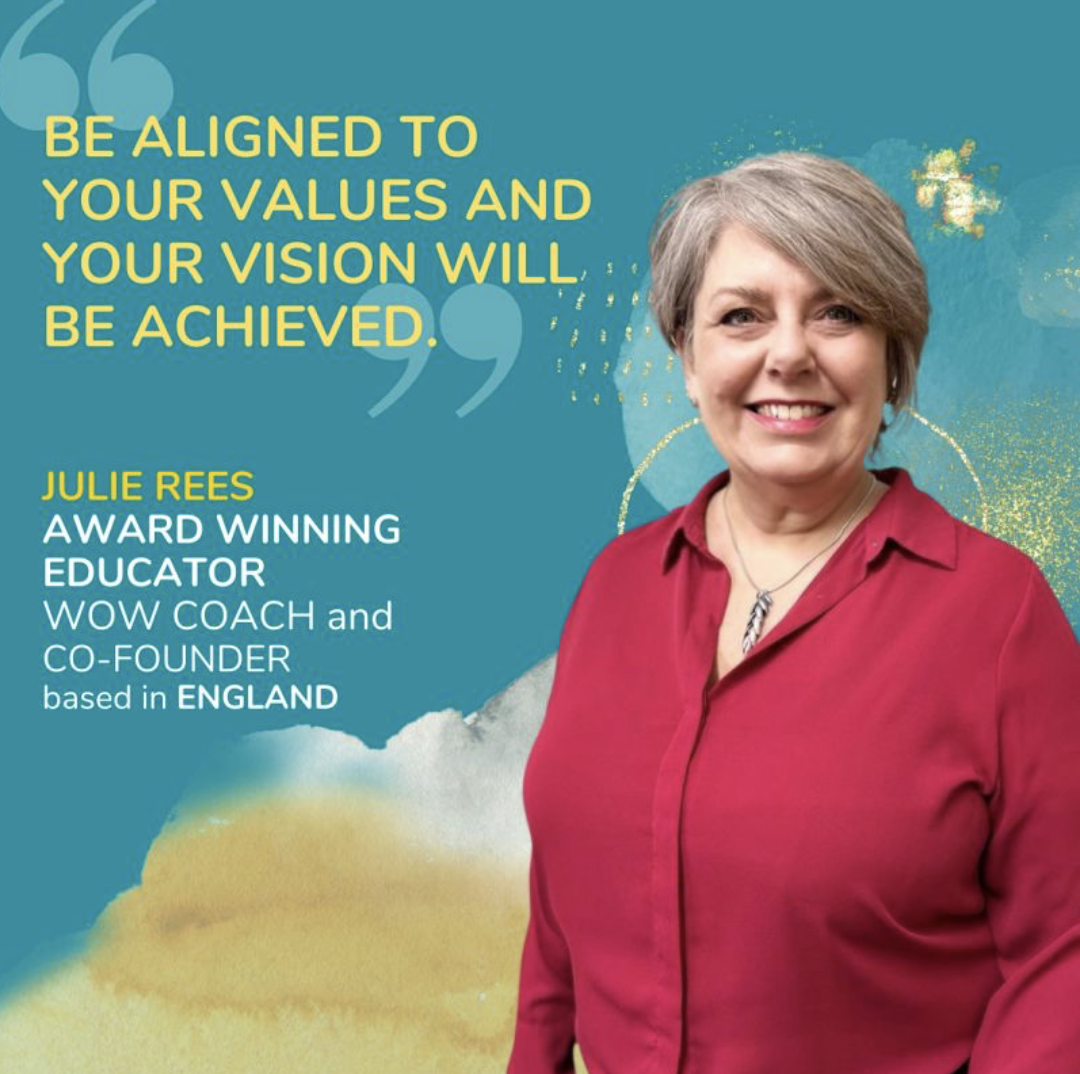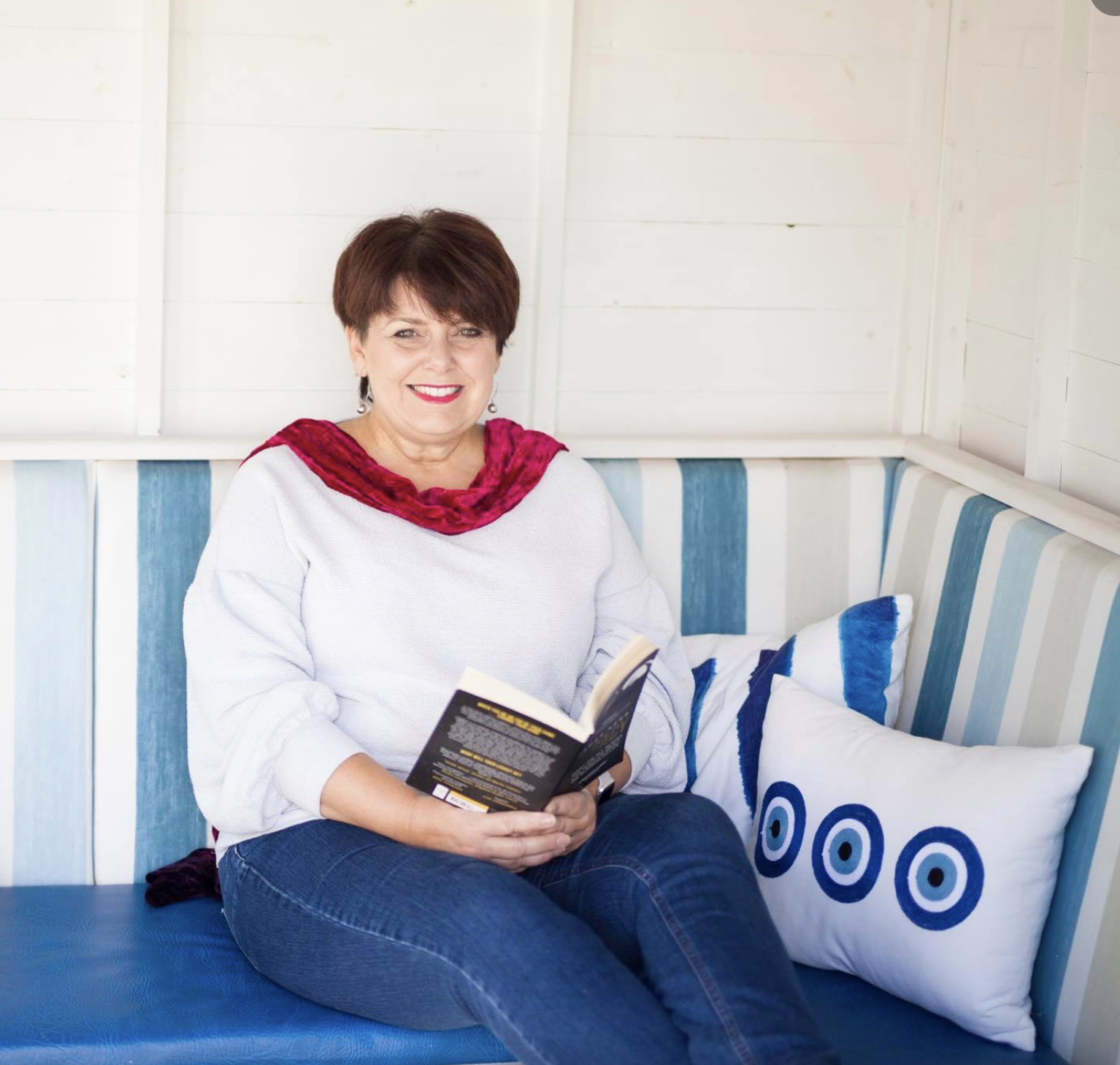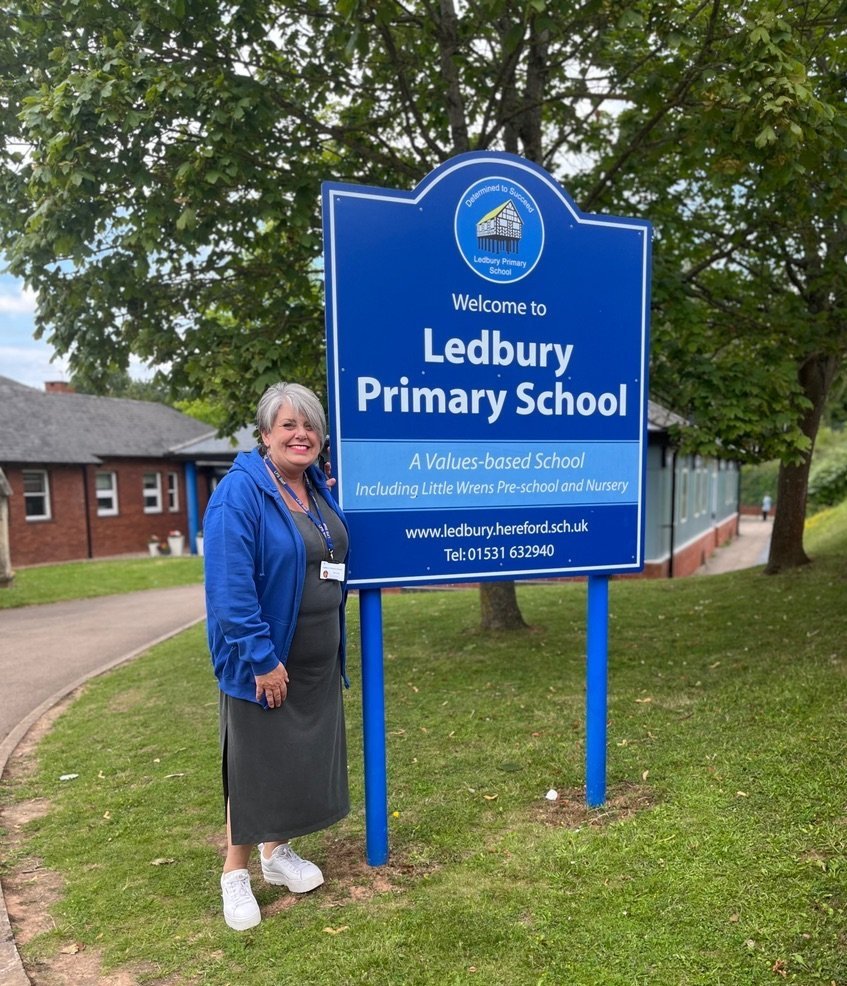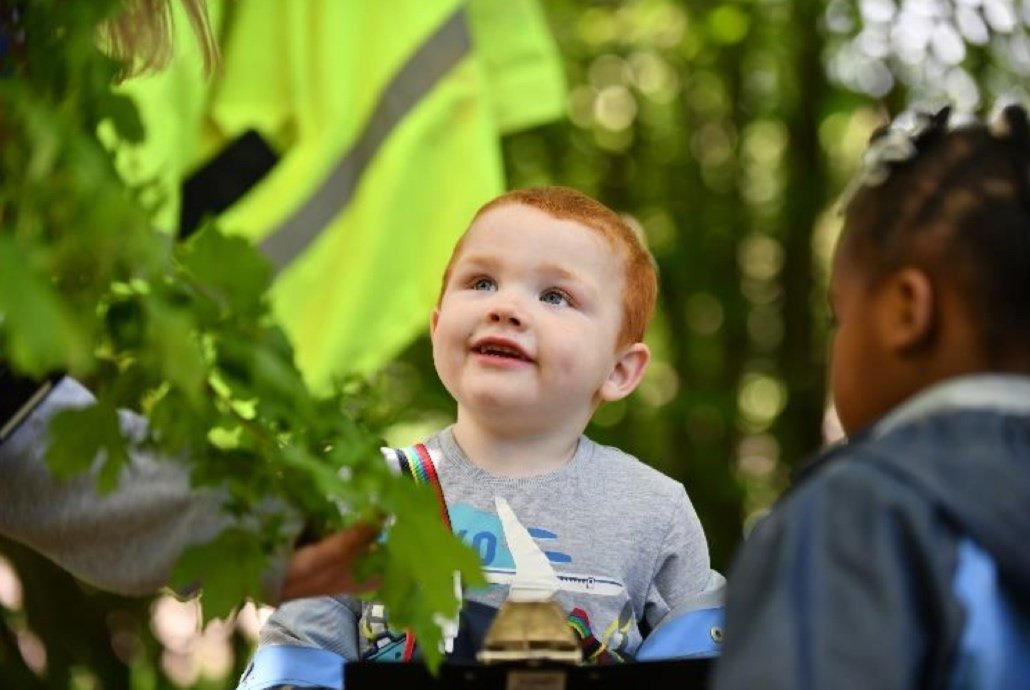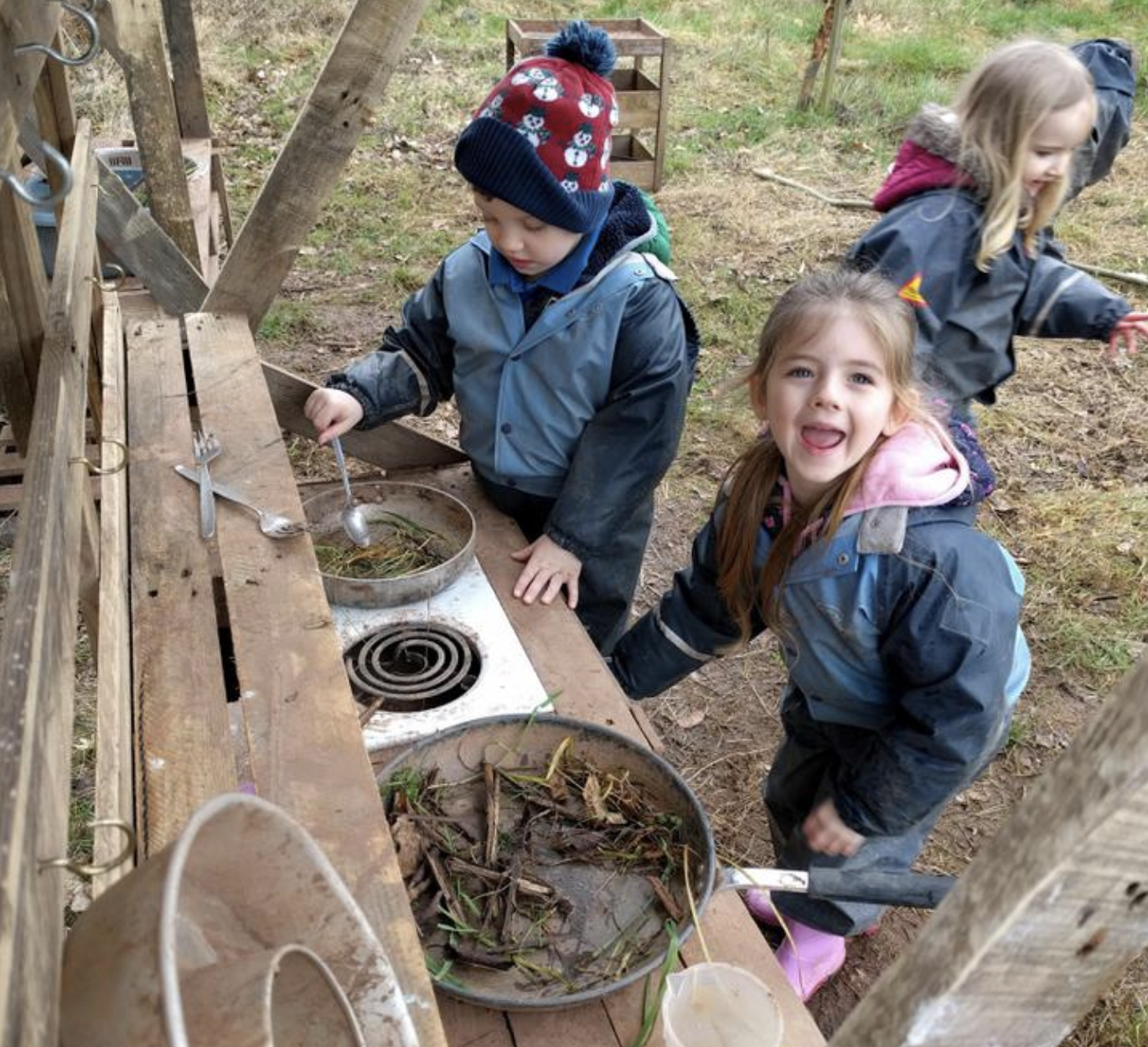Julie Rees: Lessons To Live By
British educator Julie Rees is instilling life skills grounded in character-building values. While fulfilling the academic 3Rs (reading, writing, arithmetic), she also imparts values-driven 3Rs (respect, resilience, responsibility). The latter approach is to cultivate lessons to live by, providing long-term guidance for one’s future and conduct in life.
“I became a teacher because I loved children,” reminisces Julie. “I absolutely adore children and connect with them. And then I came to understand how powerful teaching could be.”
Teaching values is important so children understand that materialism will not bring them happiness.
“Comparison causes mental health issues and that comes from judgement: judgement of self against others,” she laments. “Sadly, there is a materialistic desire that drives wanting the next best thing. You may get a chemical release for two seconds but it’s not for long-term happiness.”
“When I was younger, values were taught at home around the dining table. Perhaps that doesn’t happen as much now with the pressures of modern life. So we teach that in school - what does Respect feel like, look like etc.”
Interviewing Julie took me back to the best of my school days. She is that nurturing, lovable teacher you had, or wished you had. She is the competent and inspiring head teacher who provided joyful experiences that formed your best childhood memories. She is that behind-the-scenes visionary who shaped the school culture and introduced innovations which students benefited from.
Early Years
While studying for her Bachelor’s Degree in Primary Education, Julie heard about Christa McAuliffe, an American teacher and astronaut who was the first civilian who went to space. Unfortunately, Christa was killed when the Challenger space shuttle exploded shortly after lift-off. Christa’s bravery was honoured when several schools were named after her. Christa is also immortalised in her words: “I touch the future; I teach.”
“That was my lightbulb moment,” recalls Julie. “When I went on to teach, my biggest class had 36 students, and I realised those little children would grow up to be adults!”
Julie as a young Head Teacher
As a leader with insight and foresight, Julie found herself progressing to positions of considerable influence. She started teaching in 1989, then became deputy head teacher soon after, and head teacher at 35 years old.
“I had that desire to not only influence the children in my class but also to shape how the school was run. I didn’t want the school to be an educating machine focused on outcomes. I wanted to give the children experiences to help them grow.”
When Julie became head teacher, there were several challenges. To inspire her vision, she asked every teacher to write what they would like every child to achieve by the time they leave school at 11 years old. The words that came up were Self-worth, Happiness, Independence, and Confidence.
“At no point did any teacher say they wanted children to leave with 5 top grades. All of these words were values. That’s when I set out a values-driven approach.”
Under Julie’s watch, Ledbury Primary School in Herefordshire, England was run with Respect, Resilience and Responsibility.
Julie elaborates: “Respect for self has to come first. I do not like the word tolerance. Why should we be tolerating people? We should be understanding.”
“Resilience…we need the children to be growing up and not giving up. They need to learn that failing is the best learning. I would love for parents to let their children fail. Let them scribble outside the lines.”
“Responsibility… we need to take responsibility for self, our actions. If we lose it, then that’s a behaviour choice. All behaviour is a form of communication. Our thoughts affect our feelings, affect our actions. You take responsibility for your actions. Understand why you behaved that way and equip yourself with the knowledge to change your behaviour.”
Shaping Sustainable Values
At the forefront of everything Julie does is the question: “How do I grow the beating heart of the school?” Teaching children to be responsible also includes caring for animals and the environment.
“We had a beautiful forest school where children learned how to look after the natural world. We also had a school dog. We know that if children have a strong connection with pets when they’re young they more likely to have empathy when they are older.”
At the Forest School, a child’s face expresses wonder
Effective outdoor learning
Mindful of the UK’s regulations and requirements, Julie set out to give children memorable and enriching experiences. They did #20Wednesdays where each teacher would design a course around personal interests such as photography, sewing or sports, and offer these for 20 Wednesday afternoons.
“Because of the world we live in, children need to have spontaneity. If it’s same old, same old, then that’s not going to keep them on-board,” Julie asserts.
There were local, overnight and residential trips. They had mini orchestras, plays, shows, poets, storytellers and had the alumni back in school. Carnival week was also a huge celebration and a great community event.
“We know the adult brain is not fully formed until it’s 27 years old. So what we’re trying to do is build those onion layers of experience and understanding so that children can draw on these as they become adults.”
Lessons On Belonging, Being, Becoming
Julie appreciates that schools have a fundamental role in forming an individual’s past, present and future narrative.
“We want children to know where they belong. You belong to yourself first, then you belong to your family, to your class, to your school and then to the community.
When we know we belong, we learn how to be. That’s where the values work. How do we know how to be if our best friend said something that hurt us? How do you choose to be today? Are you going to choose to be responsible, respectful? Or choose to be miserable and make other people’s lives miserable?
You can become anything you want to be if your mindset is in the right place. This is about possibilities and aspirations. We have examples of pupils who have gone on to do very different interesting things!”
“As adults we need to understand that all behaviour is a form of communication,” says Julie as she shares this image on LinkedIn.
Julie wishes that people would do more work before they become parents. “Children come with different challenges. Connection fires those neurons. If every parent spent time and energy playing, talking, being curious, and developing a growth mindset in their child between the ages 0-5 years old, they reap the rewards later on.”
Julie signs off all correspondences with the phrase “In kindness.” It is a philosophy she lives by, and it is palpable in every encounter with her. “In kindness” also reflects her inherent caring, nurturing character that is visible in her speech and action. Julie is a values-driven educator through and through.
Looking through Julie’s LinkedIn account, I was moved by her post about notes in a jar when she left her Head Teacher post.
“Every child wrote a note for me which I keep in a jar and everyday I’m allowed to read one note. This is the note for today: ‘Thank you for always being there for me, for being so kind, always having a smile and being positive always. I love you Mrs Rees’.”
This note brought tears to my eyes.
“Now, you tell me – do you want a million £ (GBP) or do you want a million of these?” Julie asks provocatively.
A jar of messages from pupils of Ledbury Primary school - a parting gift to Julie
Julie reads one of these a day.
“Children know if you want to be in their company, as a leader, as a teacher or as a parent. If you go in the classroom just because teaching is a job, children will make your life tricky. But if you are authentically there because you love being in their presence, you want to develop them as people, then teaching is the most magical rewarding job. You’ll never have to work again because you’ll be paid for something you love doing.”
Making Things Better
During the pandemic, Julie trained to be a coach. She realised that “I could do the same with adults and have a bigger reach – enabling adults to touch the future, to teach.”
Julie recently assumed a new role as executive leadership coach at Making Stuff Better, an organisation that was founded because in schools, “you need to make things better all the time.” The company believes in “Regenerative Spaces” – creating time for leaders to reflect on the challenges they’re facing, the answers they already know, and provide encouragement via high quality coaching.
“Every teacher needs to have a huge amount of training. Your presence needs to be calm, consistent and firm with fair boundaries. Children need to know there will be unconditional love. They can explode and articulate how they’re feeling and you’re there to hold that space for them. When a child’s brain goes to primitive mode, there is no reasoning with them. So understanding the tools and support you can give a child is absolutely quintessential to being an excellent teacher or parent.
Leaders need to be 100% immersed in the culture of their schools. I believe in teaching leaders to be more coach-like in their communication with staff and with children. This means getting rid of judgement. We encourage little steps of generous conversations, connecting with eyes and ears, rather than going with a premise of what we think the outcome will be. This way you build confidence, you build relationships that are core,” Julie asserts.
The lightning-speed changes in technology have not escaped Julie, who remembers that it was “chalk and talk” when she was in school. But now computers and access to almost infinite information is instant, thanks to the invention of the World Wide Web (www).
“The introduction of AI is a whole new world again. We are just beginning to understand how that can help us. It presents its own challenges. Thinking, creating and experimenting, being curious are important skills we still need. We need to keep stimulating the brain and working on those skills and use AI to our advantage and not let it rule us.”
Julie is also a sought-after speaker at various conferences and a consultant at a number of organisations. She has written a book for independentthinking.co.uk and is invited to share her views on values-based education in the UK and abroad.
Taken in Madrid after a Making Stuff Better coaching programme
With WOW founder Isa Buencamino and co-founders Catherine Ward and Jocelyn Goh
As one of the co-founders of the Women of the World (WOW) Coaching Programme, Julie shares, “I am absolutely passionate about women celebrating their strengths and gaining confidence to make a difference to their communities and the world.
The power of networking and leaning in can bring positive changes to people's lives. People flourish when they are in an arena with those who can appreciate their talents. WOW is an international network of women who are proud of themselves and the women they are connected to.”
Julie brings her personal values to her multiple roles. Kindness, passion and trust are the values she lives by.
“One starts by being kind to self – not comparing or judging yourself against others, giving yourself time to grow. It is important to nurture yourself and ensure that your physical and mental health are in a good place,” she suggests.
As the author of fairy tale book Peter Pan, J. M. Barrie once said, “Always be kinder than necessary.”
“You don’t know what is going on in another person’s life. If you go on with that premise and understanding, then you will come from a place of compassion. And compassion is one of those beautiful skills we know holds true.
Passion is interest, curiosity, energy, passion for living. It doesn’t have to be totally extroverted.” That’s where Julie’s coaching principle of “enabling people to flourish” comes from. Passion also drives making the world a better place.
“Then there is Trust – to trust self, trust others and in trusting others you are able to delegate, get the best out of people. You become less controlling, less jealous, control is not your driver. If you can trust then you are far more relaxed and open to possibilities.”
Julie personifies what Irish poet William Butler Yeats once said: “Education is not the filling of a pail, but the lighting of a fire.”
Embraced in kindness and charged with a burst of energy, my hour with Julie comes to a close. I am inspired to apply the lessons I just learned.
Roxanne | ws
Images courtesy of Julie Rees and www.ledbury.hereford.sch.uk
Contact: Julie Rees - LinkedIn | Julie Rees | Making Stuff Better | Women of the World (WOW) | Email: WOW@whatsinsideltd.com

